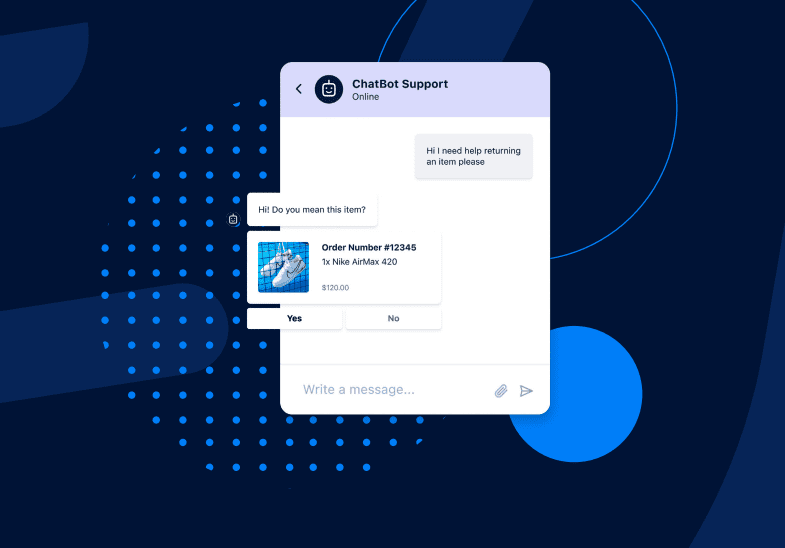How chatbots can enable ambitious companies to scale

Ever used a chatbot? Chances are you will have at some point when needing to track down a missing parcel or find some basic information about a company.
They are simple to use and invariably highly effective at giving customers the information they need. Or if not being able to divert them to their real life person who has the required information.
Yet have you ever stopped to think about how chatbots could benefit your business? In some ways, they can prove to be the silver bullet that can help your company to scale.
The challenge of scaling
When sales teams hit targets or new products excite consumers, companies can find themselves facing new challenges, especially the staff at the sharp end, namely the customer support team.
What do companies need to put in place to ensure that customer service is never compromised, potential business opportunities aren’t squandered and existing customers are kept happy?
Also in an age where productivity is top of both the business and political agendas how can customer services teams work faster and more efficiently?
One solution that more and more companies are turning to as they look to scale is chatbots.
So what exactly are chatbots? In short they are computer programs that use technologies like machine learning to simulate real, human conversations. They process information from incoming customer messages and then deliver the appropriate responses or take designated follow-up actions.
The early chatbots from a few years ago, could be hit and miss. Yet as technologies have advanced chatbots too have become sophisticated, intelligent and ultimately more useful.
If deployed sympathetically and effectively chatbots can deliver the frontline of customer service. By responding instantly to basic customer enquiries, while at the same time having the intelligence to know when to escalate a query should a live agent need to become involved, they can enable companies to scale their level of customer service. They provide the back-end for ambitious companies whose priority is growth.
How chatbots work
Modern chatbots leverage Artificial Intelligence (AI) and Machine Learning (ML) technology to understand, process, and respond to customer questions. This particular type of AI is called natural language understanding (NLU) and natural language processing (NLP).
The technology can, for example, recognise intent, classifying the query based on what the customer wants to achieve – this can help with directing the customer to the right agent.
Another important function that chatbots can undertake is to determine the sentiment of the person making the query. By analysing their language they can work out whether the information is positive, negative, or neutral. This can help detect the feelings behind a customer’s messages and escalate enquiries based on those sentiments, so customer service teams can prioritise accordingly.
So what are the major benefits of chatbots?
1. Cost reduction
The cost of a live service interaction over phone, email or webchat is more than $7 for a b2c company and more than $13 for a b2b company. Where chatbots are highly effective here is acting as a filter and ensuring only calls that need to be handled by live agents are directed to them. Companies who harness chatbots can save up to 40% on service costs by reducing the number of incoming calls live agents handle daily. Juniper Research even predicted that chatbots would save businesses in the banking, retail, and healthcare sectors up to $11 billion annually by 2023.
2. Productivity
Chatbots can have a significant impact on the productivity of customer service teams as they mean that more customers get the answers they require in a shorter time. In handling high-volume and repetitive customer requests and questions, chatbots enable human agents to spend more time on complex issues and high-value activities that build customer relationships.
3. Enhanced customer service
The growth of the web has empowered more companies to develop global markets for their products and services, but this also creates issues. How can their customer service teams be there for clients who are in different time zones? Chatbots can help to solve this issue as they are available on a 24/7 basis and can help with enquiries even if customer service teams are inactive.
Chatbots can also use customer data to give more relevant and personalised answers – which significantly contributes to an excellent experience. Bots can automatically reference things like past purchases and open support tickets to automatically provide updates and resolve simple questions.
Types of chatbots
There are several types of chatbots and each has a different role within customer service.
● FAQ Chatbots which are primed to answer simple, recurring customer questions – like the ones you’d find on an FAQ page. Examples of these questions include: Where is my order? What are your product specs?
● Virtual Agent Chatbots which are again important for productivity as they largely do away with the requirements to speak to a human. This is especially useful in the insurance industry as they can help to speed up the claims processes by automatically requesting and archiving documents, photos etc.
● Interactive Form Chatbots which essentially does away with the need for customers to fill out a survey. It collects customer information via a guided chatbot.
● Proactive Chatbots send notifications or reminders for things like order and delivery statuses, upcoming payments, and appointments.
Chatbots have already come a long way and for many companies are now central to their customer service processes. As they become ever more sophisticated they are likely to become ubiquitous. If your company is serious about scaling, they are the silver bullet your customer team needs.
